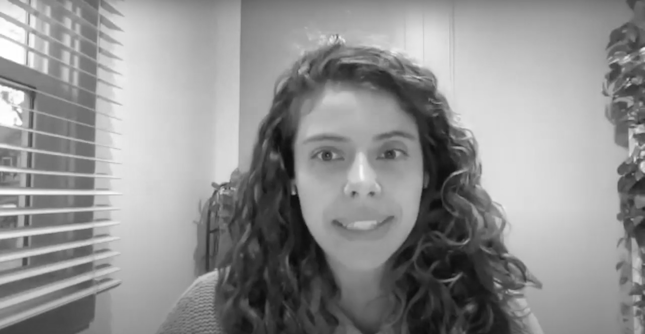
The climate emergency has left no corner of the globe untouched, from desertification in Africa to the destruction of Indigenous lands in Latin America. As new climate crises arise, how are activists and attorneys using legal strategies to safeguard human rights?
On January 25, Robert F. Kennedy Human Rights, in partnership with the Center for International Environmental Law (CIEL), the Center for Justice and International Law (CEJIL), and the Pan African Lawyers Union (PALU), convened a panel of environmental and legal experts to discuss the human rights implications of climate change. RFKHR moderator and Vice President of International Advocacy and Litigation Angelita Baeyens led the conversation with co-panelists Donald Deya, Chief Executive Officer of PALU; Viviana Krsticevic, Executive Director of CEJIL; and Luisa Fernanda Gómez Betancur, Senior Attorney at CIEL.
Aside from immediate effects such as drought, flooding, and food insecurity, the panelists discussed other devastating human rights consequences of climate change - particularly in the Global South.
“We are looking at climate change as a contributor or a primary cause of mass atrocity crimes – genocide, crimes against humanity, war crimes, and ethnic cleansing,” Deya said. “When there’s a fight over water, when there’s a fight over pasture, when there’s conflict between communities and big mining corporations…there’s a lot of war being caused just around the intersection of climate.”
Drawing on their experience in different regions of the world, panelists also described recent legal interventions in response to the climate crisis. Deya, Krsticevic, and Gómez Betancur repeatedly referenced a need for international advisory opinions that would clearly define States’ obligations regarding human rights and climate change.
As Baeyens explained, requests for advisory opinions are currently pending before three major international tribunals - the International Tribunal for the Law of the Sea, the Inter-American Court of Human Rights, and the International Court of Justice. Once a country or group has submitted a request for an opinion, the court is then able to respond by clarifying States’ obligations in relation to the climate emergency. These advisory opinions, while not legally binding, would create a comprehensive framework instructing countries on how to address various aspects of the climate crisis.
“The climate emergency is bigger than any country, any sector, any issue,” said Krsticevic. “We need to work together, think together, build bridges…to guarantee the rights of all.”
“We find ourselves in a historical moment,” added Gomez Betancur, referencing these three parallel processes. “We need to make sure that international obligations of all States and companies are made explicit under multiple bridges of international rights in the context of climate change.”
Deya, whose organization is currently leading the process to request an advisory opinion from the African Court on Human and Peoples’ Rights, highlighted how this request may yield better results than filing a contentious case. Unlike litigation, he explained, an advisory opinion is non-threatening to States, so many more of them are willing to open up and participate.
Additionally, the Court is more open to receiving input from a variety of actors in an advisory opinion process, and often even reaches out directly to relevant organizations.
Deya also discussed how the organizations drafting the request are looking to the request that was filed in the Inter-American Court as an example, using it to determine how they should frame questions to the African Court. Deya sees this request as one part of a continuous movement-building effort, as an advisory opinion on its own has less of an impact.
Krsticevic, one of the driving forces behind the 2023 advisory opinion request from Chile and Colombia to the Inter-American Court of Human Rights, agreed that the advisory opinion process facilitates productive conversations at both the national and international levels.
She also referenced the necessity of protecting environmental defenders who step up to ensure these climate policies become reality. Without those who defend climate solutions and speak truth to power, responses from global leaders and policymakers will not be fruitful, and climate action will not move forward.
“You can have all the laws, policies, agreements, and conventions you want in place – but without protections for the human rights defenders that are actually putting those words into action, we have nothing,” she said. “There are no rights if people cannot make sure that they don’t suffer harm when they step up and try to move decision-makers, communities, and businesses in the right direction.”
Help Us Protect Human Rights
Please give now. Your contribution will make a difference in the critical effort to achieve equal rights for all.